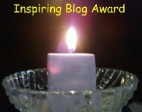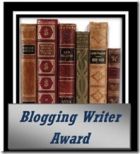Critical, critical
I’m going to admit it. I’m becoming very critical.
I’ve always been critical – particularly of myself – but lately I’ve been really critical of a lot of things.
Today I was given a short story to read. The purpose of the story was to demonstrate how to use descriptive language to create an emotional affect in the reader. Possibly it succeeded in that but the only emotional affect it had on me was the desire to grab a red pen and have at it – I managed to resist the urge but barely.
So what was wrong with the story?
Every single person or thing in the story was described by at least two adjectives in almost every single instance. Every single time. I’m sorry. The person is whistling. Sure, you can tell us how they are whistling and what it sounds like but the next time you feel the need to mention it you could just say whistling. You don’t then need to come up with two new adjectives (or an adverb and an adjective) to describe how the whistling is happening.
Objects were appearing ‘out of nowhere’. Umm, no. Unless they were tearing through interdimensional portals I’m pretty sure they came from somewhere. Maybe it wasn’t an important somewhere but to explicitly state they came from out of nowhere just leads the reader to wonder how that is even possible.
Characters were behaving out of character – which in a short story is really distracting because you don’t even have the benefit of later explaining the out of characterness (I know that isn’t a word).
I’ll admit it. I’m awful and I’m tearing this story to threads. And it lead me to realise some of the weaknesses I still have in my own writing. I like adjectives (not to this extent but I over use them to be sure). I may not have things appearing out of nowhere but I’m sure I suddenly have people in scenes where they shouldn’t be and have no logical reason to be and I’m sure I need to work on it. I need to turn this critical eye away from things I’m reading and apply it to things I’m writing and I need to look at what I could be doing instead.
Plenty of areas here for me to work on. What are you working on improving?
What’s Your Point of View?
After finishing Death’s Daughter I wrote a post over on my old blog about the difficulties of writing in first person. I made the decision at the time that I wouldn’t be using first person for the next few projects because I found it limiting in that I could only tell the story from one person’s point of view and if that person didn’t know something critical than the reader couldn’t be told that critical bit of information.
I’ve since written two complete works in third person. One is a train wreck that I will eventually edit and rewrite and work into something usable. I blame the protagonist, she stepped outside the action one too many times and was out-shone by the entire rest of the cast. Shame really because the concept and the world work really well and the use of third person allowed for such a broad exploration (which might be how my protagonist got lost).
The other was a less ambitious piece as it was aimed at young adults and follows the narrator essentially sits on the shoulder of the main character for most of the story with a few minor deviations. This piece has been polished, to a point, but I’m not sure what to do with at the moment. It should be the start of a series but I’m not really ready to write the next installment and I don’t know that I will be any time soon, so it is cooling its heels while I think it through.
Now I’m starting a third project and it is also in third person. I think it is time to reflect on my choice.
I still love first person. I love being inside a character’s head and feeling what they feel, learning as they learn. As a reader I enjoy it and as a writer I find it immensely satisfying. For character development.
As far as constructing a plot, I find third person much easier to work with and it provides me with more opportunities and avenues to persue. And you can still construct very interesting characters and show their feelings and reactions, though at a slight distance.
I like both. I think I might try my next project in first person again because it has been awhile but I really am enjoying writing in third person as well.
What point of view do you use?
Thinking Outside The Box
I’ve always hated that expression – mostly because it gets me wondering why I was put in the box to begin with. Yet most of the time our thoughts are boxed in and closed off. They follow predictable paths they’ve gone over before, never looking beyond the obvious. I don’t like boxes. I have a thought bubble but it is just as restrictive (though prettier because it shimmers all different colours when exposed to sunlight).
As writers it is important that we recognise our bubbles and boxes. If we were to write only what we know then we would never leave our bubbles. Our stories would also get very samey very quickly and we would hopefully get bored with writing it and move on. Our characters would also be very much for muchness and have similar motivations and moral values and thought processes because their writer and creator didn’t stop to think outside of their comfort zone.
How can we think outside our bubble?
- Talk to people – all sort of people and find out what they think about things and why.
- Read everything. Doesn’t matter if you are interested in it or not. You may just pick up an idea or two that you had never considered.
- Practise empathising. Put yourself in someone else’s shoes and try to really think how they might see the world. Try to put your preconceptions aside and really feel as though you had lived a different life.
- Sometimes it helps just to turn everything upside down. Whatever you think, write the opposite. You can tone it down later but just practise being the complete opposite of yourself. It helps to start you thinking about all the possibilities in-between.
How do you start thinking outside your bubble/box?
Call For Writers 2
Okay – the poll results are in and the question that 50% of the voters wanted answered was… imagine a drum roll, it adds to the suspense:
What is the most important element of a novel to you and why?
As such, I am now calling for all the writers out there (published and unpublished) to have a go at answering this question and share their thoughts. If you would like to participate in this it is really, really easy.
- Write a response to the question above (aiming for about 250 words for the response).
- Write a brief bio for yourself.
- Send me an email with your response, a picture of yourself (optional), a brief bio and a link to your blog (if you have one) before February 10. Email address is cassandra.jade.author (at) gmail.com. Please do not spam me.
- Visit the blog from February 15 and read the wonderful responses and join in the conversation that follows.
Step 5 would be good too – share this information with everyone else so that we get many participants and many comments.
For those who participated in the last call for writers, I hope you respond again because I look forward to your responses. For those new to reading the blog, I’d love to hear your thoughts as well.
To recap – Novel Element Series is running from Feb 15 and I am hoping to be able to run it over the week (depending on the number of responses). If you would like to contribute, email me your response before Feb 10. Looking forward to seeing the responses and if you wanted a different question answered keep your eyes open for the third call to writers that will happen sometime after February.
Books Don’t Come With a Soundtrack
Maybe the title should be ‘books don’t come with a soundtrack yet’ because we know books are changing all the time and with audio books chances are there are some out there that already have a soundtrack. However, for this post I am thinking about traditional print books and they don’t have a soundtrack.
I was thinking this because I was planning out a scene in my head the other day for a writing project I am hoping to start just as soon as I settle everything from the move and in my head it had the most fantastic musical score playing behind it. My protagonist was running and there were explosions and there was smoke but through it all there was this fantastic full orchestra and I was quite swept away. Unfortunately you can’t write in the middle of a story “orchestra plays dramatic music in background” so the scene becomes so much less than what I originally imagined and without the score the entire scene just become fairly flat and i realised that I would definitely need to work on it.
Writing isn’t just about telling stories. It is about connecting to the reader and captivating them emotionally. That is what separates a person’s favourite books from a book that was an alright read. For me the books that become favourites are the ones that manage to replace the soundtrack with the author’s voice.
You can tell any scene about a thousand different ways, unfortunately about nine-hundred of those will be boring, terrible, or completely incomprehensible, which leaves you with about 100 ways to tell the scene that might actually work. However there is a difference between something that works and something that sweeps the reader away and transports them into the story.
How important is voice to you? Which authors do you read because of their voice? I would love to hear your views.



